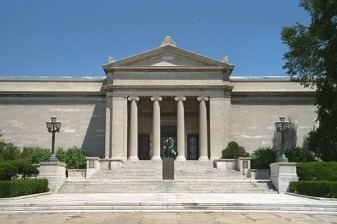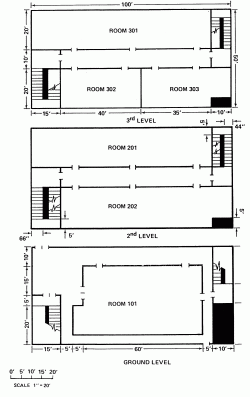About Our Museum

The Museum of Umuofia is a museum run by Jimmy Bivans. The museum contains facts about the society in Umuofia, the traditions the residents had, and models of what they used in every day life.
As you look through the three main rooms of the museum, you will notice that the traditions and customs in Umuofia were very important to how the people lived. You will have a better knowledge of what life was like in Umuofia.
Below is a layout of the museum. Room 301 is the Human Culture Room. Room 201 is the Anthropology of Religion Room. Room 201 is the Cultural Change Room. Room 101 is the main lounge, where people can relax and learn basic facts about Umuofia.
The Human Culture Room
The Human Culture Room shows the beliefs and some customs in Umuofia, such as:
-- Tribalism, or the profound loyalty that the clan members had towards the clan and people in Umuofia. The members were to never disobey a fellow clan member, no matter what the scenario was. The members very rarely broke a clan rule, if ever.
-- Respect determined how you were looked at by the clan members. It was a thing that had to be earned by a person. For example, if you are weak, you will lose the respect of the people in the town, and you will become very unimportant. The respected men of Umuofia were usually a member of the clan, which was in charge of running the town. These men most likely gained there respect by doing a heroic or helpful act for others.
-- Obi, or one's own hut. An obi was always built by a man, and where he lived with his family for the rest of his life. Building an obi was a very important custom in Umuofia because a man's obi is a symbol of his pride and honor.
Anthropology of Religion Room
The Anthropology of Religion Room shows the different beliefs that the people in Umuofia had. They believed in:
--Spirits, such as a person's chi. A chi is one's own spirit. This spirit can be good or bad, and is usually the blame for what actions that person takes. The most important spirit is the Oracle. The Oracle is a spirit that gives people advice or help when needed. The people believed that whatever the Oracle had said was true or had to be done, no matter what. Some people are egwugwus, or people that wear masks to resemble spirits.
--Gods are very important in everyone's life. In Umuofia, people believed in many gods. They prayed and sacrificed things to the gods. However, one god had more power than the others. Chukwu was believed to be the most powerful god, and was feared by his believers. People only asked for help from Chukwu if help was not given by any less powerful god.
Cultural Change
The culture in Umuofia went under some dramatic changes in a short period of time. Some of these changes were:
--The introduction of Christianity. When the missionaries showed up to Umuofia and accepted the outcasts as part of the religion, Christianity grew. The outcasts of Umuofia finally fit in, and the new religion appealed to many of the people in Umuofia. However, those who did not convert to Christianity believed that Christians were weak and lazy. They believed the converts to Christian took the easy way out instead of earning what they get.
-- The men becoming weaker had a tremendous effect on the culture. Some of the men were not doing work and became weak and cowardly. They were becoming afraid to go to war or lose their respect. They also became very lazy. They did not want to work for anything, and often found the easiest solution. Only a handful of men stayed strong, like their ancestors before them, and fought for their customs and beliefs.

